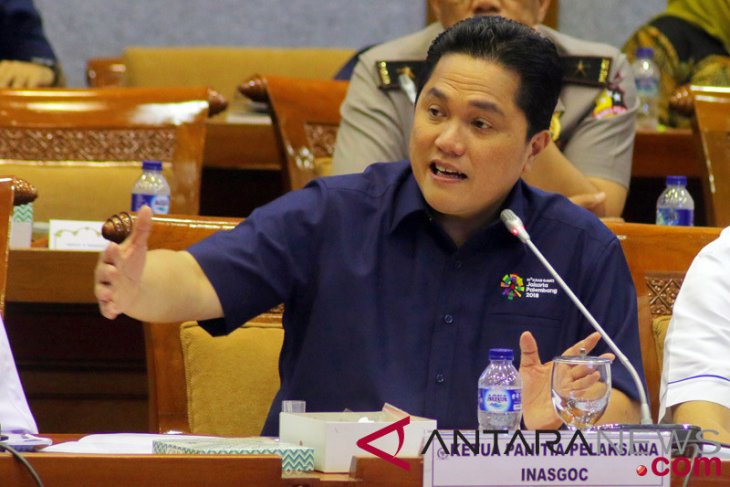Live Streaming
Program Highlight
Company Profile

Ani Hasanah
Indonesia Fortunate to Choose Social Distancing over Lockdown: Jokowi
President Joko Widodo (Jokowi) believes Indonesia is lucky to choose the large-scale social restriction and distancing policy rather than a lockdown to flatten the curve of the new coronavirus disease that has spread nationwide.
"Four provinces and 22 districts/cities have applied the large-scale social restriction and distancing measures," he stated during a videoconference held at the Merdeka Palace in Jakarta on Thursday.
With the large-scale social restrictions in place, residents in affected areas can continue to conduct outdoor activities though being sentient of their obligation to implement the COVID-19 protocols, such as maintaining physical distancing and avoiding massive gatherings, he emphasized.
"We are doing our best. We are upbeat that the peak of the COVID-19 pandemic would soon peter out, though several experts believe that despite the number of cases descending, the curve will not directly flatten or the number of cases would be zero," President Jokowi expounded.
Until the proven vaccines are available, the people, at large, must come to terms with the fact that they will have to co-exist with COVID-19 for a period of time, he noted while urging the public to remain disciplined in applying the COVID-19 preventive measures.
Many roads in numerous areas wear a desolate look owing to the enforcement of large-scale social restriction measures. However, he also received reports on people failing to practice physical distancing measures, wear face masks, and wash hands, Jokowi pointed out.
The provinces, districts, and cities whose governments have enforced large-scale social restrictions comprise Jakarta, West Sumatra, West Java, Banjarmasin, Tarakan, Bandung City, Bandung District, Bandung Barat, Cimahi, Sumedang, Depok, Bogor City, Bogor District, Bekasi City, Bekasi District, Tegal, Makassar, Tangerang, Tangerang Selatan, Pekanbaru, Surabaya, Gresik, and Sidoarjo.
The novel coronavirus disease initially struck the Chinese city of Wuhan at the end of 2019. Since then, it has spread to at least 202 countries and territories, including Indonesia, with a massive increase in the death toll.
The Indonesian government officially announced the country's first confirmed cases on March 2 this year.
The ongoing COVID-19 pandemic has weakened the purchasing power of scores of Indonesian families, particularly those who have lost their jobs.(ANTARA)
May

Minister of SOEs Erick Thohir. (ANTARA)
Jakarta - State-Owned Enterprises (SOEs) Minister Erick Thohir, on Wednesday, expressed a belief that global investors still perceived Indonesia as one of the lucrative countries to invest.
"In the wake of today's situation of an unstable global market, we can see several investors interested in the SOEs' global bond that might be a testament to the fact that Indonesia is still attractive for global investors," Thohir noted in a statement.
To this end, the minister has encouraged SOEs to employ creative approaches to seek funds, for which a cue can be taken from the issuance of the global bond as a sound example.
On Tuesday, May 5, PT Bank Mandiri’s US$500 million oversubscribed by nearly five times, as the demand touched US$2.4 billion. The global bond offered a coupon of 4.75 percent per year, higher than the government’s global bond coupon of 3.9 percent issued in early April. The five-year debt paper will mature in 2025.
The investors comprise some 66 percent from Asia, while another 34 percent are from European countries, the Middle East, Africa, and the United States.
Bank Mandiri earned a Baa2 rating with a Stable outlook from Moody's, BBB- with a Negative outlook from S&P, and BBB- with a Stable outlook from Fitch.
PT Hutama Karya had earlier successfully launched its US$600 million global bonds. The debt paper was oversubscribed by some six times. The global bond offered a coupon of 3.75 percent per year. Some 42 percent of the investors came from Asia; while 30 percent were from Europe, the Middle East, and Africa; and 28 percent from the United States. (ANTARA)




